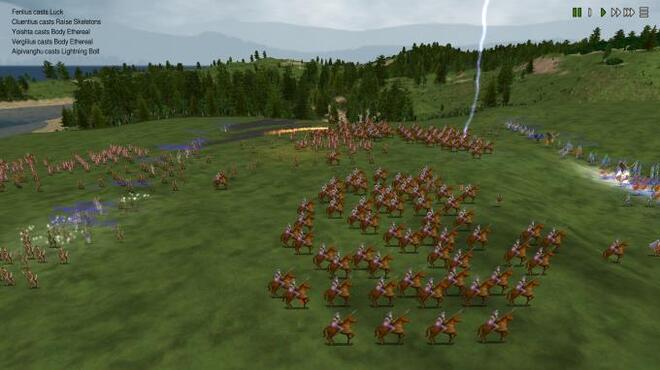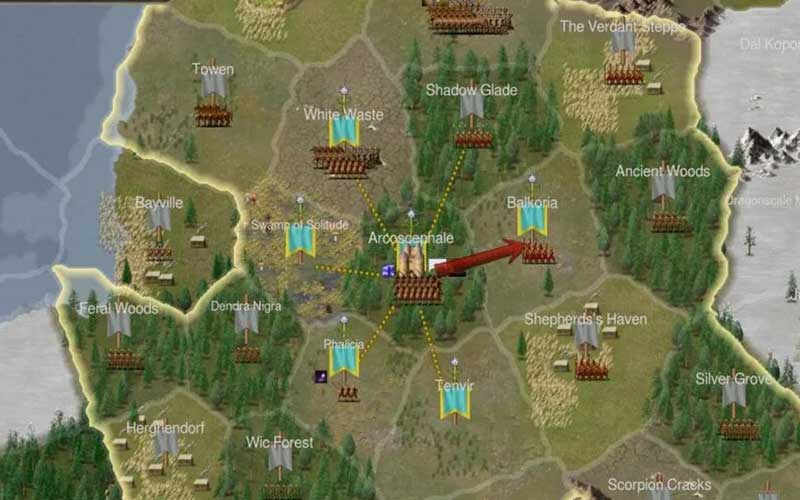

Armies can only move from one location to another when grouped with a commander. Once a battle begins, you have no input whatsoever. Your control over units in battle is oblique and subtle. Since most of the units that are powerful spellcasters are also the best researchers, and since you can only research spells in certain locations, this creates a challenging tension where some of your best units will be far away from the front lines, hunched over books, studying instead of fighting. In order to cast a spell, you must first research it.

Spellcasting is a major part of the game, and can influence battles greatly, especially since many of the spells in the game improve the skills of your soldiers, or degrade those of the enemy’s. One does this by either inflicting heavy enough losses, or by killing their commanders. The immediate goal of a battle is not to kill every unit, but to force all of the opposing armies to rout. Large battles are quite impressive to watch.

Choosing to do this takes you to an animation of your two armies clashing, demonstrating exactly who killed who and with what weapon or spell. You’ll receive a report telling you who won and how many units were killed, and be given an option to watch a replay of the battle. When opposing armies meet, the battle is resolved automatically, by the computer. “Gentlemen, the officer who doesn’t know his communications and supply as well as his tactics is totally useless.” Both resources and money are multiplied by and collect in fortresses, at the cost of draining the surrounding regions of both. Since opposing units and temples interfere with your Dominion, you must conquer their territories, rout their armies, pillage their women, sexually assault their cattle, and generally act in a way completely consistent with the history of many monotheistic religions, which is to say “with overwhelming brutality.”Īrmies are purchased with both money and “resources.” Money builds up in the treasury and can be saved from turn to turn resources are use-them-or-lose-them. Your Pretender God radiates Dominion, as do his or her (or its) priests and temples. When you have more influence in a given territory than any other Pretender God, it is said to be under your dominion.ĭominion spreads outward in a radius, in varying strengths, from several sources. In order to do this, you must spread your influence, or Dominion, over all the territories in the world. The conceit of the game is that your nation is led by a Pretender God whose goal is to ascend to the seat of heaven. Dominions bears as much resemblence to Risk as Capture The Flag With Stuff bears to Tag. It has a map, and the map is segmented into territories, and territories generate resources which can be used to buy armies or units. On the surface, one could be forgiven for thinking of Dominions 3 as being yet another Risk-like game.


 0 kommentar(er)
0 kommentar(er)
